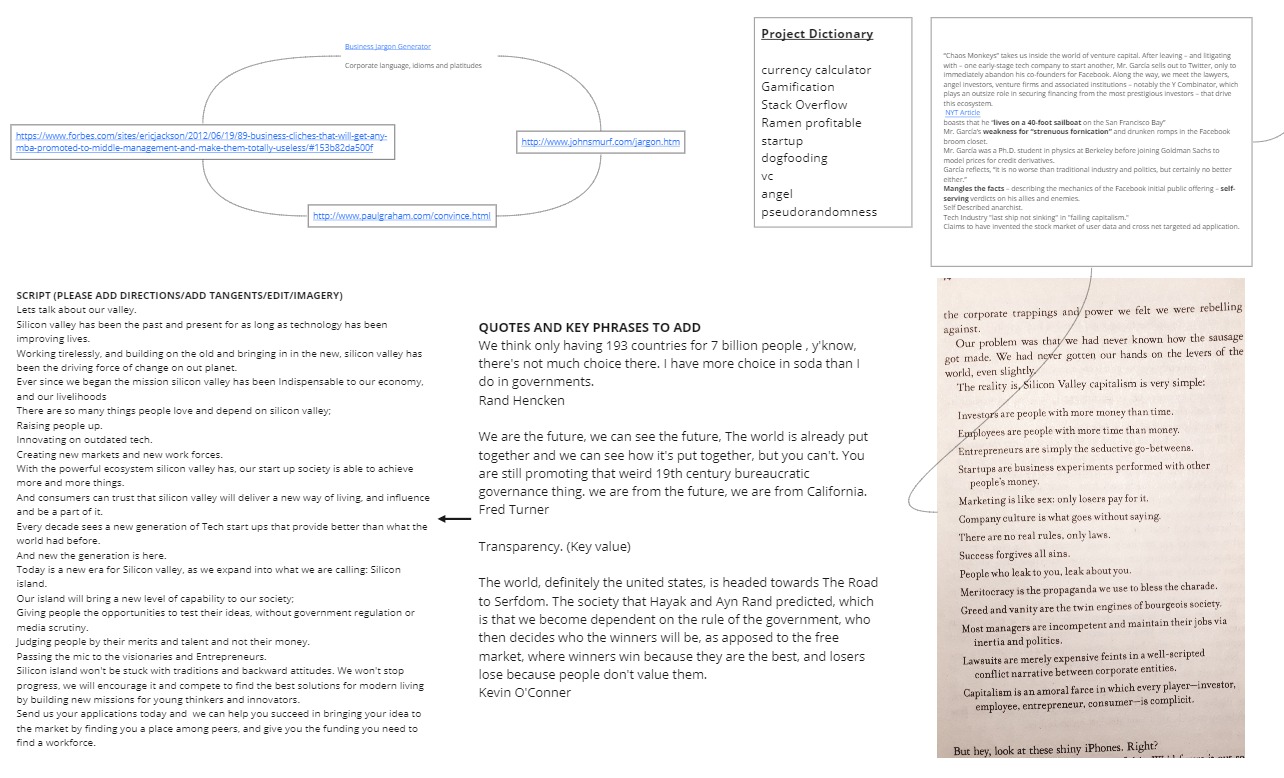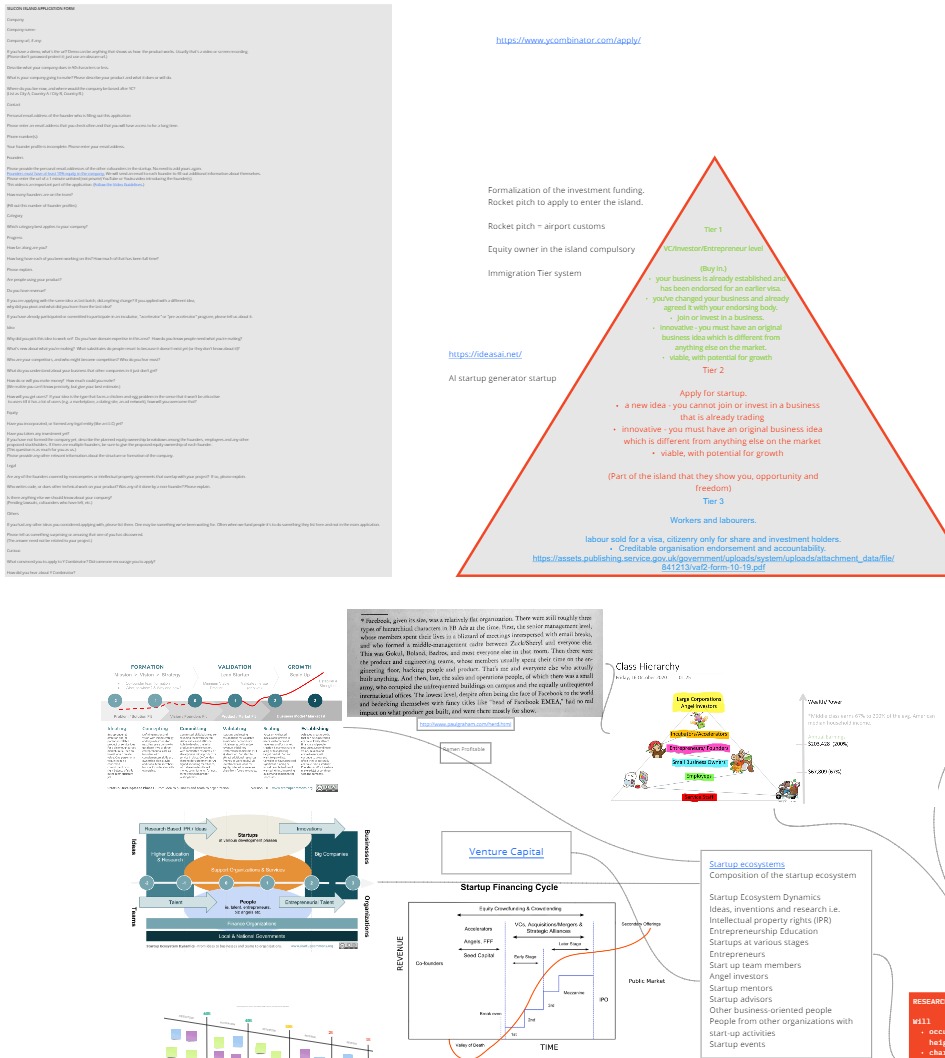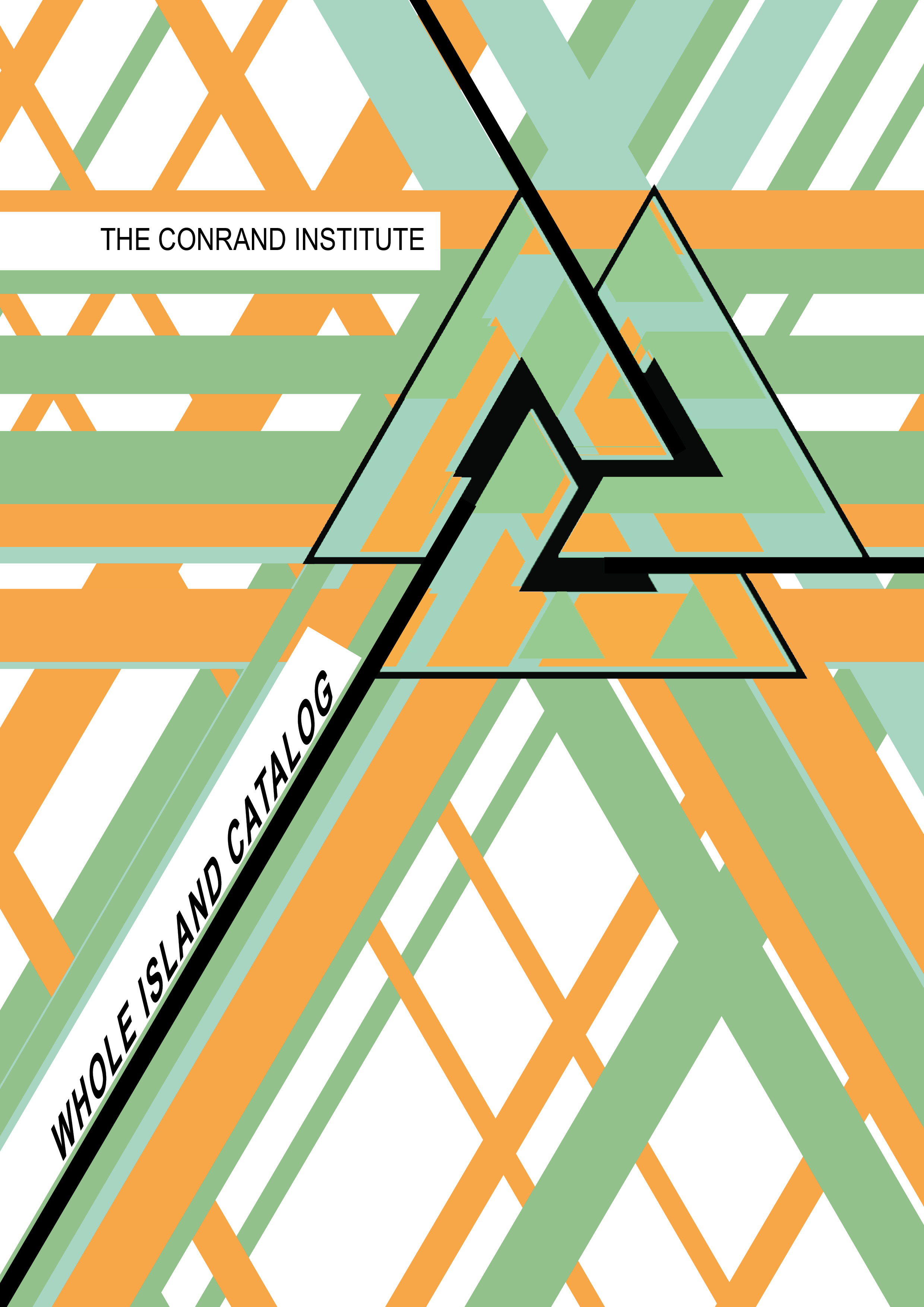2.1 Cowboys, Cults and Coney Island 2.1
Silicon Valley - as a society - is a complex, non-geographic, interwoven and contradictory set of practices and communities. This group project aimed to take a critical look at the practice of the entrepreneur in modern society and the power, leadership and iconography they hold. We approached the topic of silicon valley through a discussing things like - The cult of economics, blockchain, Brand cults, Wall street. Ideas led to us abbreviating several points to "Silicon Valley", hence we thought it was a good direction to go as it encompassed group interests.

Above is the script we wrote for me to use in the original advert/pitch of the island. Having studied Tim Cook for many an hour we'd picked up on buzzword and mannerism that were shared by many big entrepreneurs, perhaps we could validate a start up dictionary? We'd seen something similar in a Paul Graham essay about start up lingo. Phrases such as "ramen profitable", which means to live on scraps to allow your start up to gain a foothold, were common and abundent in the industry, we wanted to bring as much of this into character as possible. The two main sources we found for the general language and mannerism of the entrepreneur and the up and coming business person was a youtube documentary called "Cybertopia" by a dutch news site, and a book by a, I suppose, disenchanted entrepreneur call "Chaos Monkeys" by Garcia Martinez. From the interviews on the doc, a random gym-tech entrepreur would quote Ayn Rand or Hayak in a really flat meaningless way that doesn't really mean anything but it would justify there endless subvert actions that take advantage of employees and ruins communities.
 Mindmap 1.
Mindmap 1.
 Mindmap 2.
Whole Island Catalog.
Mindmap 2.
Whole Island Catalog.
A publishing in the 1960s called the "Whole Earth Catalog" is recognized by many as an origin for the Silicon Valley Ethos. It was basically Which Magazine but run by hippies in a commune. They wanted to describe the tools that would best help someone live independently and as a self sufficient community. "Stay hungry. Stay foolish." - Whole Earth Catalog. quoted by Steve Jobs at his Stanford Honorary ceremony, was on the back cover of the last edition of the Whole Earth Catalog. It was well known that Jobs had once lived on one of the communes linked to the magazine. The hippie culture meets commercialism, is how I think you could describe Silicon Valley. Garcia-Martinez(entrepreneur) is a Anarcho-Capitalists self defined and Paul Graham has been described as techno-libertarian The commune idea feeds into the startup culture, a group going out there on their own to start anew, only not a new community but a new company. there is a sense of everyone having the same opportunity to break free and start up if they have a good idea, and people will flock to the best ones. This was our own Whole Earth Catalog but for the island. I liked this because when I discovered The Whole Earth Catalog, I didn't like the way it was being used to justify the ethos of Silicon Valley. Making this meant we could use it in that bad way more directly to examine the contrast between the original Catalog and the way it's used to justify.
 The Conrand Institute Website.
Mindmap 3.
The Conrand Institute Website.
Mindmap 3.
Chaos Monkeys, Inside Silicon Valley
This book has been a lingerer for long enough before prompt to read. My dad had recommended this book a while back having correctly judged my course as having a shared pool of people as of whom have the mentality to "start up" new tech and/or are involved with such. On a similar topically resonent note to this, my dad had shown me PG (Paul Graham), an original silicon vallee, having started what would grow into eBay, who had before that persued a career in Philosophy after recieving a masters at university, who now ran a start up school and wrote essays on the culture and philosophy behind Silicon Valley. My dad didn't know what to think of PG, being involved in tech himself he wouldn't dismiss PG's argument, but also I remeber my dad pointing out the first comment under PG's article in HackerNews : "Paul Graham thinks everyone who doesn't own a tech business hates their job and works in a factory!". This book Lays flat those contradictions behind the mindsets of the tech start up industry, heavy in its own beaurocracy and back door deals, visa owning employees, the chaotic evolution of social media and online marketing and lays bare the hijinks, trade secrets, and power plays of the visionaries, grunts, sociopaths, opportunists, accidental tourists, and money cowboys who are revolutionizing our world. "Chaos Monkeys" is a look at some of today's most interesting social networking companies. Garcia Martinez describes his time at AdGronk and how he and his co-founders went about building the company. When he moves to Facebook he focuses more on the advertising and technical side of things with a side of the innerworkings and decision making. Tech entrepreneurs are society's chaos monkeys, disruptors testing and transforming every aspect of our lives, from transportation (Uber) and lodging (Airbnb) to television (Netflix) and dating (Tinder). He tries to give practical advice, which I think is hilarious since I doubt anyone will want to do a start up after the way he describes it, he obviously is unhappy, and its clear why. He is force out of facebook, forced to sell his start up and abandon his friends, and then outside of this he is left by his wife who has custody of his child. It's clear the book is a vessel for him to get back at people in the industry such as "Zuck" but all this sarcasm and nihlist discontent for his existence in this space could probably be the only way for this book to be delivered. He describe the cult- like Silicon Valley, company loyalties and the hush-hush developments that people never get to hear about becuase the workers of Silicon Valley believe in what they are doing, believe in a technofied world and the pace of technological development, which is one of my personal fears.